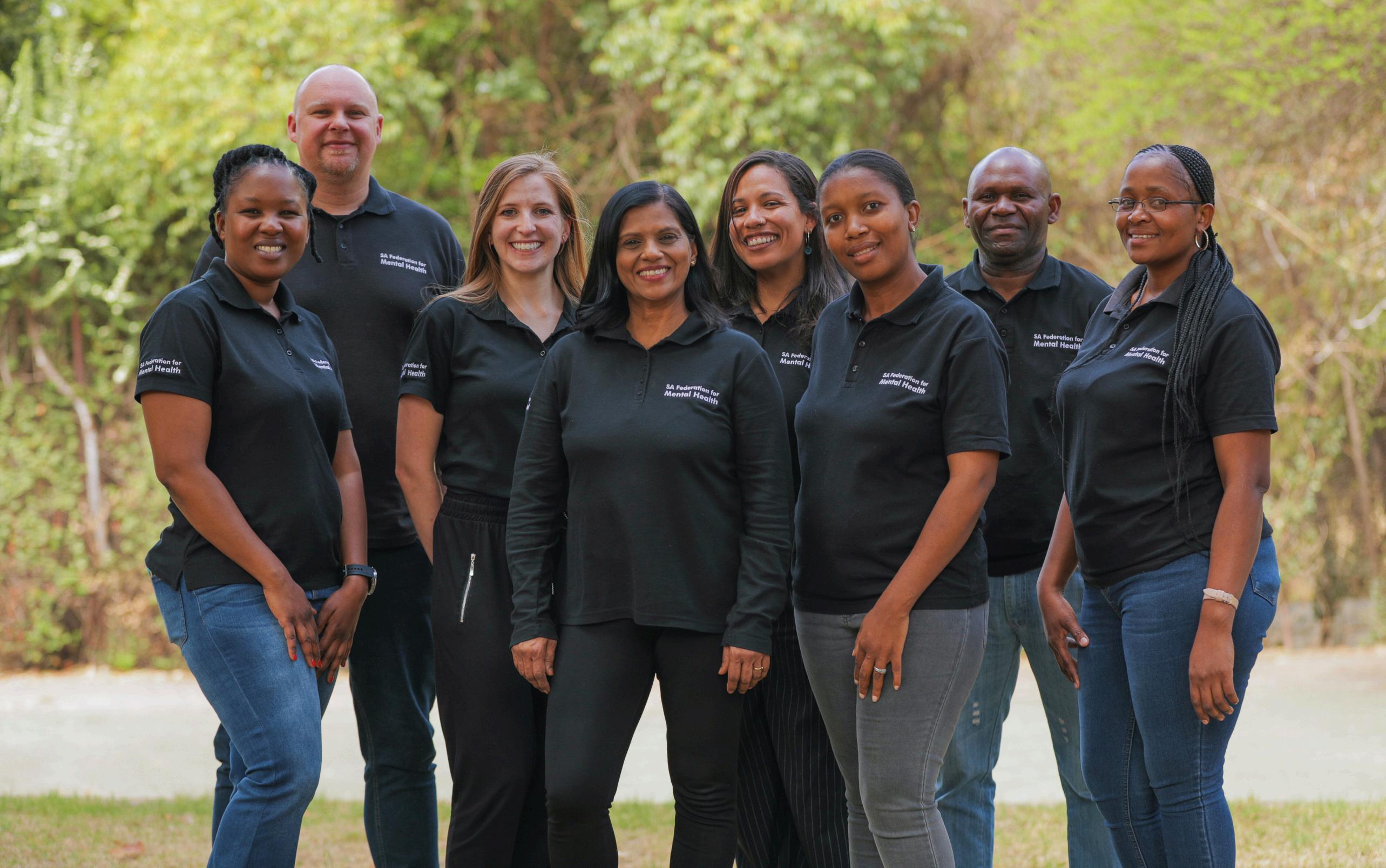ANNUAL REPORT
APRIL 2024 - MARCH 2025
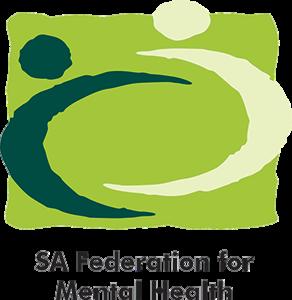
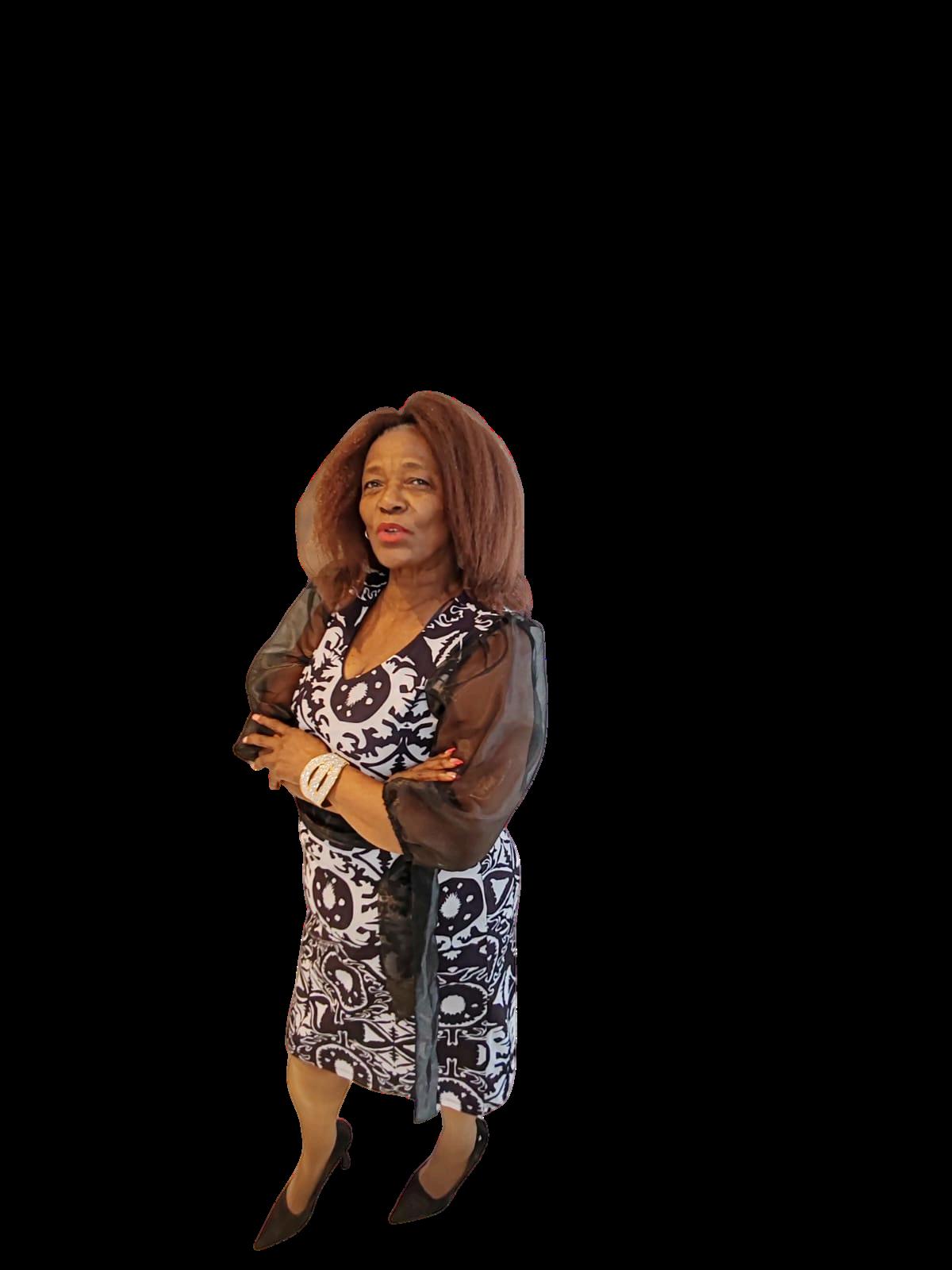

APRIL 2024 - MARCH 2025


of all before the in a their ell-being.
l health n es in ing, in dult life, al to live ctive
t mental
Urban areas may have better access compared to rural settings, yet they too still leave much to be desired.
The late payment of subsidies continues to plague community-based mental health services.
There is still significant stigma associated with mental health issues in South Africa, which can deter young people from seeking help.
lic health ccess to emains a our g people s a lack of nt mental /services, mitations
We therefore advocate for more school-based programmes, community outreach programs, and campaigns aimed at reducing stigma and increasing awareness.
We must remain resolute.
Overall,whilethere areeffortsunderway toaddressyouth mentalhealthin SouthAfrica, considerable challengesremain, necessitating ongoingadvocacy andresources.
Prof Sheila Mokoboto-Zwane
President, SA Federation forMentalHealth
LOOKING BACK AT THE YEAR THAT RAN FROM 1 APRIL 2024 - 31 MARCH 2025, I REFLECT WITH IMMENSE PRIDE AND GRATITUDE ON THE INCREDIBLE PROGRESS WE HAVE ACHIEVED. This is especially the case for promoting youth mental health, advocating with international and national partners to improve mental health systems, and creating much needed awareness about mental health in communities.
I wish to express my deepest gratitude to all who have supported SAFMH during the year as we expanded our National Youth Mental Health Advocacy Forum, which has already started making an impact on policy development and representation at high-level engagements.
The SAFMH Helpdesk is committed to ongoing efforts to uphold the rights of persons with mental health conditions so that more people can be guided towards quality mental health services and care in the community. We remain committed to ensuring that the mental health systems in South Africa are strengthened to address the growing need for population mental health.
Our partnerships with community-based mental health organisations reignited when we hosted a three-day workshop with the directors of our 17 Mental Health Societies who had not met in person since the COVID-19 pandemic. You will read more about this exciting workshop in the sections that follow.
In keeping with the theme of promoting youth mental health, the Societies are committed to promoting mental health awareness in schools to reach more communities and expand referral pathways to community mental health services in accordance with the Mental Health Policy Framework 2023-2030.
The year ahead shows much promise for community-based mental health as we continue to strengthen youth advocacy and awareness.
Bharti Patel
NationalExecutive Director,SAFederation forMentalHealth
AS A BOARD MEMBER OF CAPE MENTAL HEALTH, REPRESENTING A PROGRAMME FOR ADULTS LIKE MYSELF WHO ARE LIVING WITH INTELLECTUAL DISABILITY, I AM PROUD TO ALSO BE A REPRESENTATIVE BOARD MEMBER FOR SAFMH.
Thank you for the opportunity to add feedback to the annual report.
This makes me feel included and not left behind as I am allowed to make decisions that add value to the lives of individuals like myself who are living with intellectual disability.
Our voices are heard, and that makes me happy. I am always supported to understand ideas and decision-making on behalf of others, which to me adds value and respect.
I am proud to be making a difference in the lives of individuals living with intellectual disability.
BoardMember,SA FederationforMental Health
The South African Federation for Mental Health (SAFMH) is a national, human rights organisation with a 100-year plus track record of creating a society where mental health is better prioritised. We work to ensure rights-based and evidence-based mental health services are included within South Africa’s policies, systems, and care. Our Mission is to work with the community and key stakeholders to achieve the highest possible level of mental health for all. Our Board is constituted of provincial representatives from Mental Health Societies. The 17 Mental Health Societies are independent organisations with their own governance and finance structures. These organisations provide community-based mental health services to communities that are often vulnerable and under-resourced
Protecting and advocating fo mental health care users
Ensuring that the voices of m care users, their families, and South African public are hea
Raising awareness of mental health and providing mental health information
Working with community-ba mental health organisations towards quality, sustainable, consistent mental health services at community level
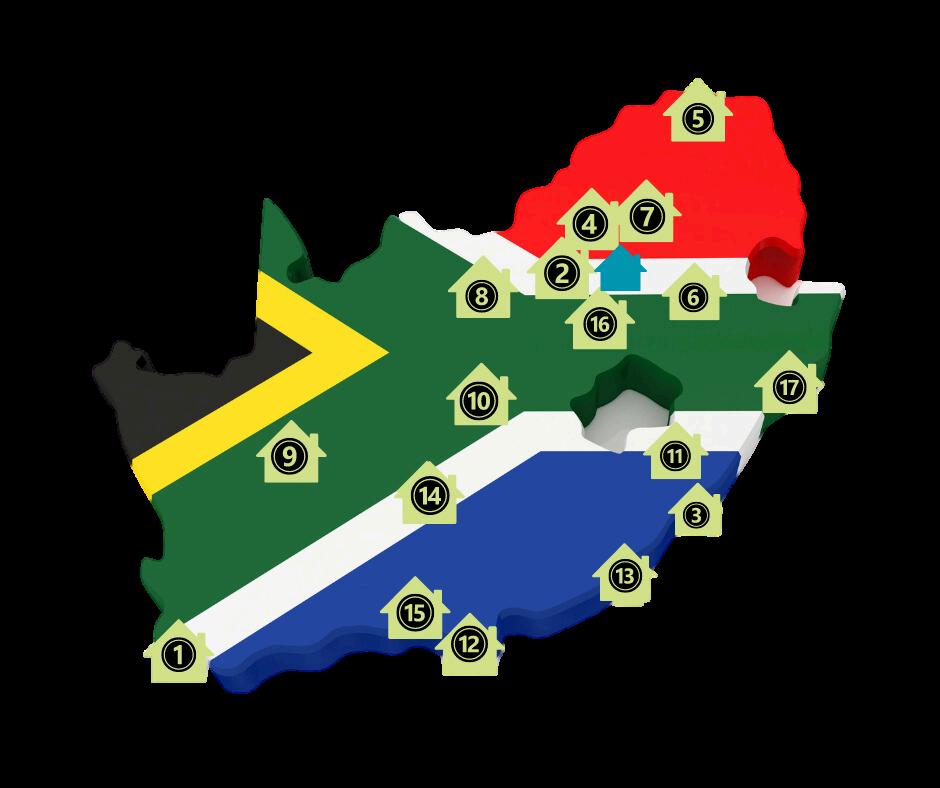
The map shows the national reach of SAFMH and the location of the Mental Health Societies
eMentalHealth
tralGautengMentalHealth
ban&CoastalMentalHealth
diumMentalHealth
popoMentalHealth
umalangaMentalHealth
thGautengMentalHealth
thWestMentalHealth
thernCapeMentalHealth
orthernFreeStateMentalHealth
termaritzburgMentalHealth
dlelaMentalHealth
HAB
uthernFreeStateMentalHealth
enhageMentalHealth
alMentalHealth
lulandMentalHealth
FMH'sNationalOffice

Our mental health advocacy work aims to change major structural and attitudinal barriers to achieving positive mental health outcomes for everyone in South Africa.
Achievementsfrom2024-2025include:
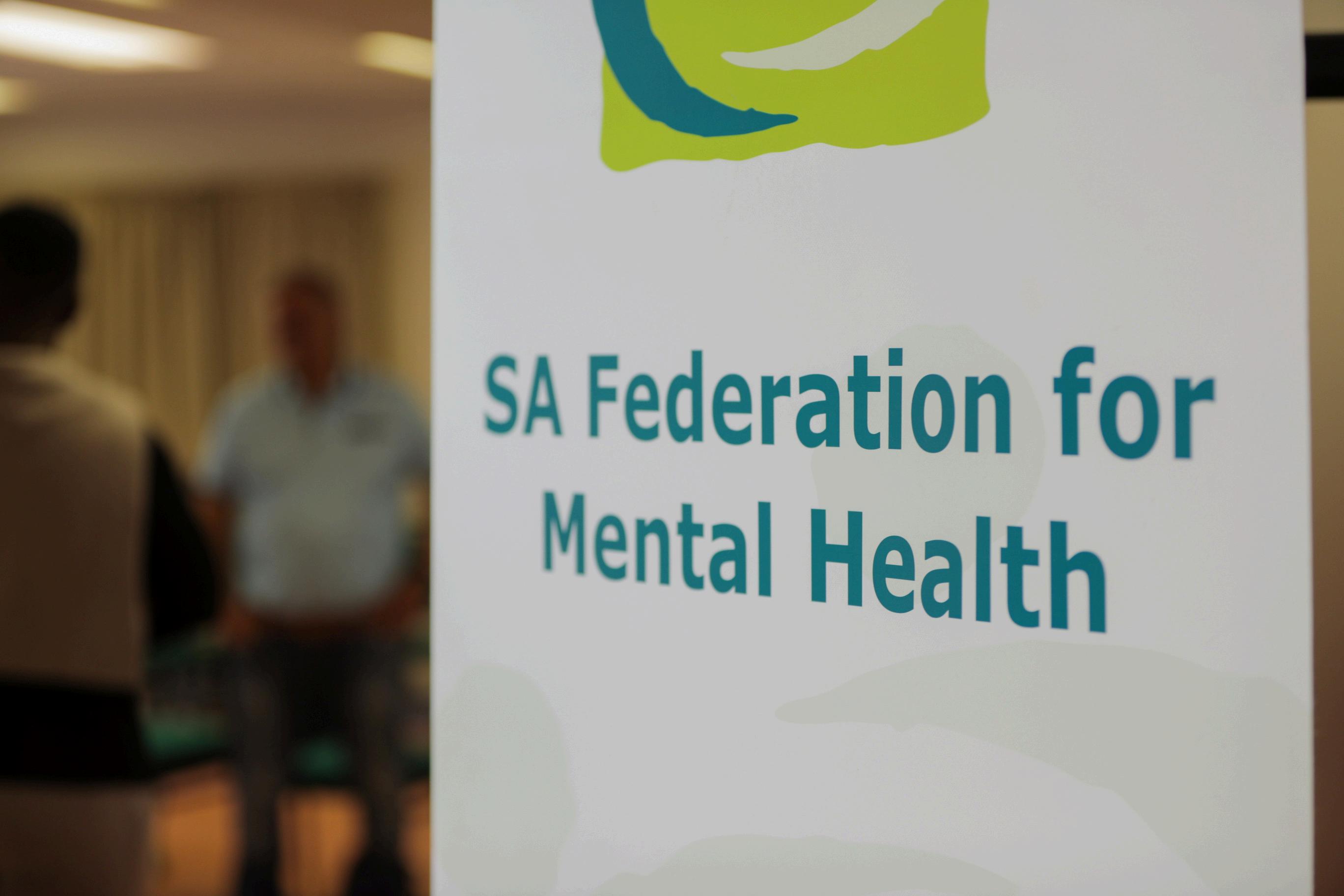
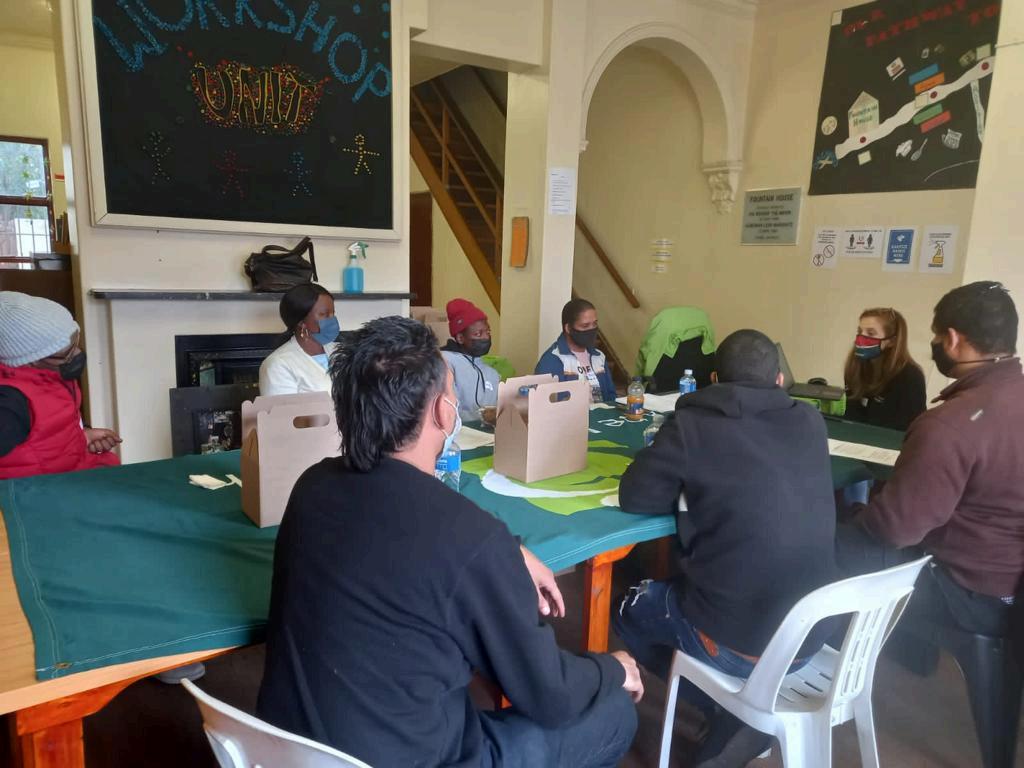
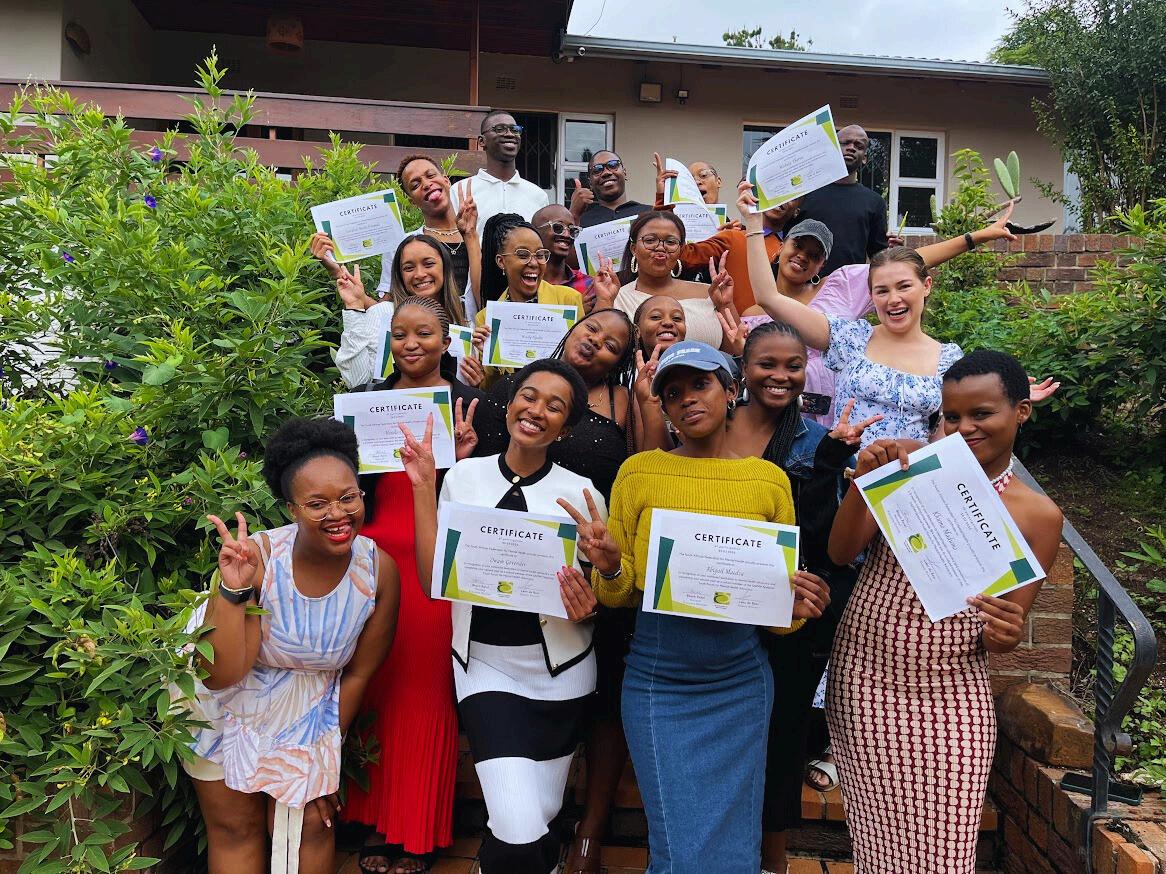
r Youth Forum received a second r of funding from EMpower to recruit new Forum members to join our first ort. Forum members created 27 ocacy initiatives and 24 awareness mpaigns, reaching 7,000+ people onally, including decision-makers.
forum aims to empower young mental lth advocates to guide national mental lth advocacy and awareness work le enhancing their voices, advocacy ls, and mental health knowledge.
k on the links below to find out more ut:
Forum members
Forum's Impact
w the Forum was developed

Partnerships are a fundamental cornerstone of SAFMH’s work in the mental health, disability and human rights sectors, locally and internationally. It enables us to ensure mental health is effectively integrated into the work of other organisations, stakeholders and decision-making platforms.
We want mental health to become everyone’s business, as it is a core component of all aspects of health and wellbeing.
Some of our key partners include the Departments of Education, Health, Social Development and Women, Youth and Persons with Disability, the World Federation for Mental Health, United for Global Mental Health, the South African Disability Alliance, The Child Mind Institute, the National Coalition of Social Service Organisations (NACOSS) and our 17 Mental Health Societies.
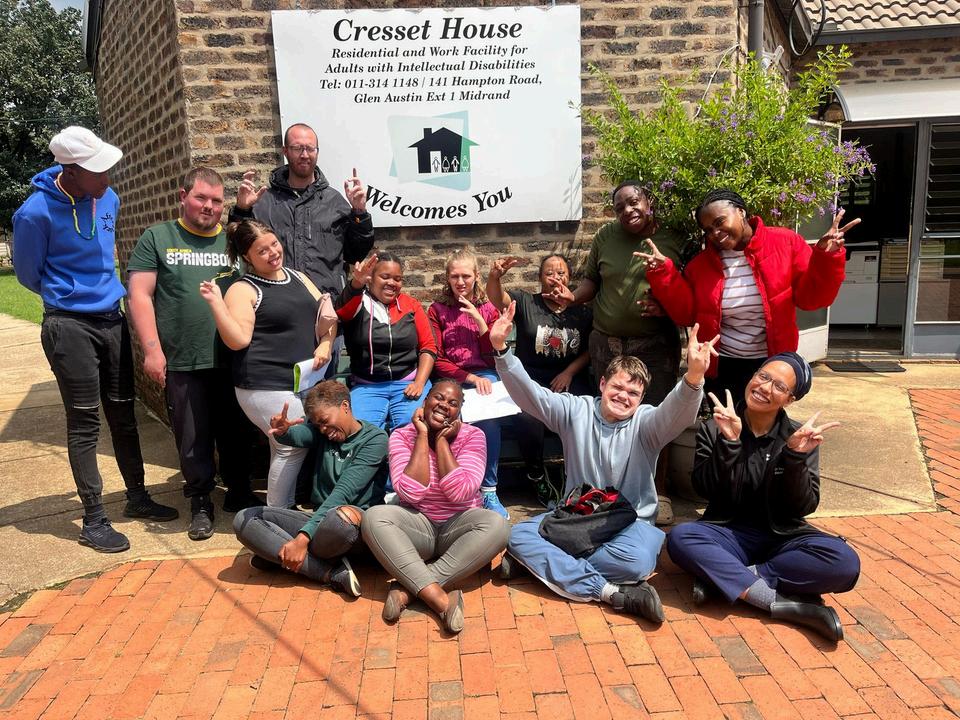
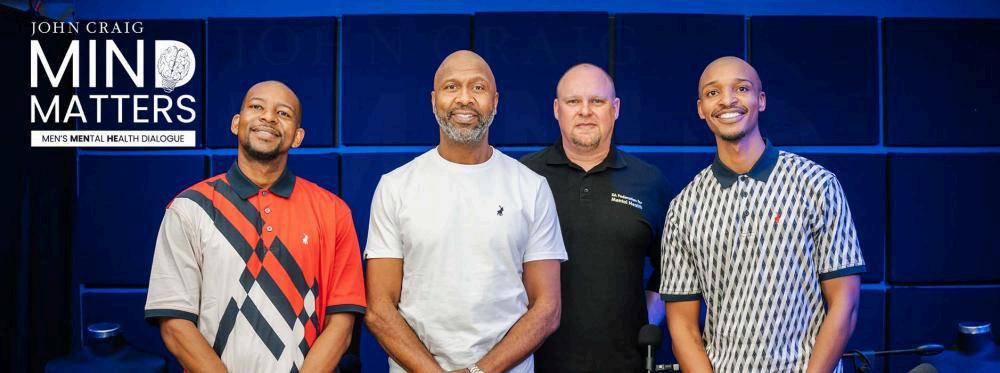
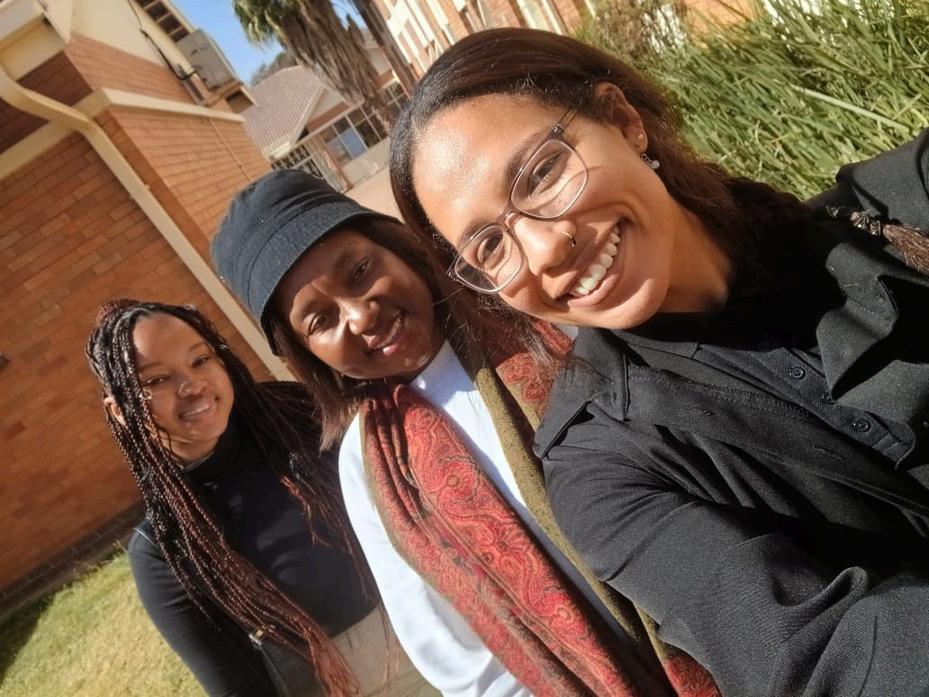

Psychosocial Disability
Awareness Month (PDAM) is celebrated annually in July. For 2024, we focused on the theme “Access and inclusion: why community mental health is important” , highlighting the important role community mental health organisations play in ensuring access and inclusion for people with psychosocial disabilities. In support of the campaign, we highlighted the necessary and effective work of our 17 Mental Health Societies and other community-based mental health organisations. Read our campaign summary here.
In June 2024, SAFMH launched its first focused campaign on men ’ s mental health, highlighting challenges such as poor help-seeking behaviour and suicide. The campaign received widespread media attention, with Deputy Director Leon de Beer featured in interviews, podcasts, and panels. Additional support came from articles by mental health professionals and a powerful lived experience piece by a young author. Given its success, SAFMH plans to continue prioritising men ’ s mental health in future advocacy and awareness efforts. Read the campaign summary here.
WorldMentalHealthAwareness Month2024
World Mental Health Day (WMHD)
2025 saw us join the call from the World Federation for Mental Health, recognising the need to prioritise mental health in the workplace. For October, we continued to advocate for mental health to be promoted and prioritised in all workplaces, ensuring employers and employees feel productive and fulfilled. We also hosted an event at our offices that included a special drama item, put together for us by residents from the Talisman Foundation. Attendees were asked to make a pledge about what they would do to ensure mental health is prioritised in their workplaces. Read a recap of the event here.
SAFMH took the opportunity to advocate for youth with intellectual disability for Intellectual Disability Awareness Month 2025. Youth in South Africa face evermounting challenges and uncertainty, including unemployment, rising cost of living, a lack of opportunities, poverty, and limited access to quality education. These challenges are significantly increased amongst youth with disabilities, including youth with intellectual disability. We shared stories from young residents at Cresset House, a community-based residential and day care facility for persons with intellectual disability. We also hosted a scrapbooking session with the younger residents of Cresset House, during which they shared more about their passions and hopes. Read the campaign summary here.
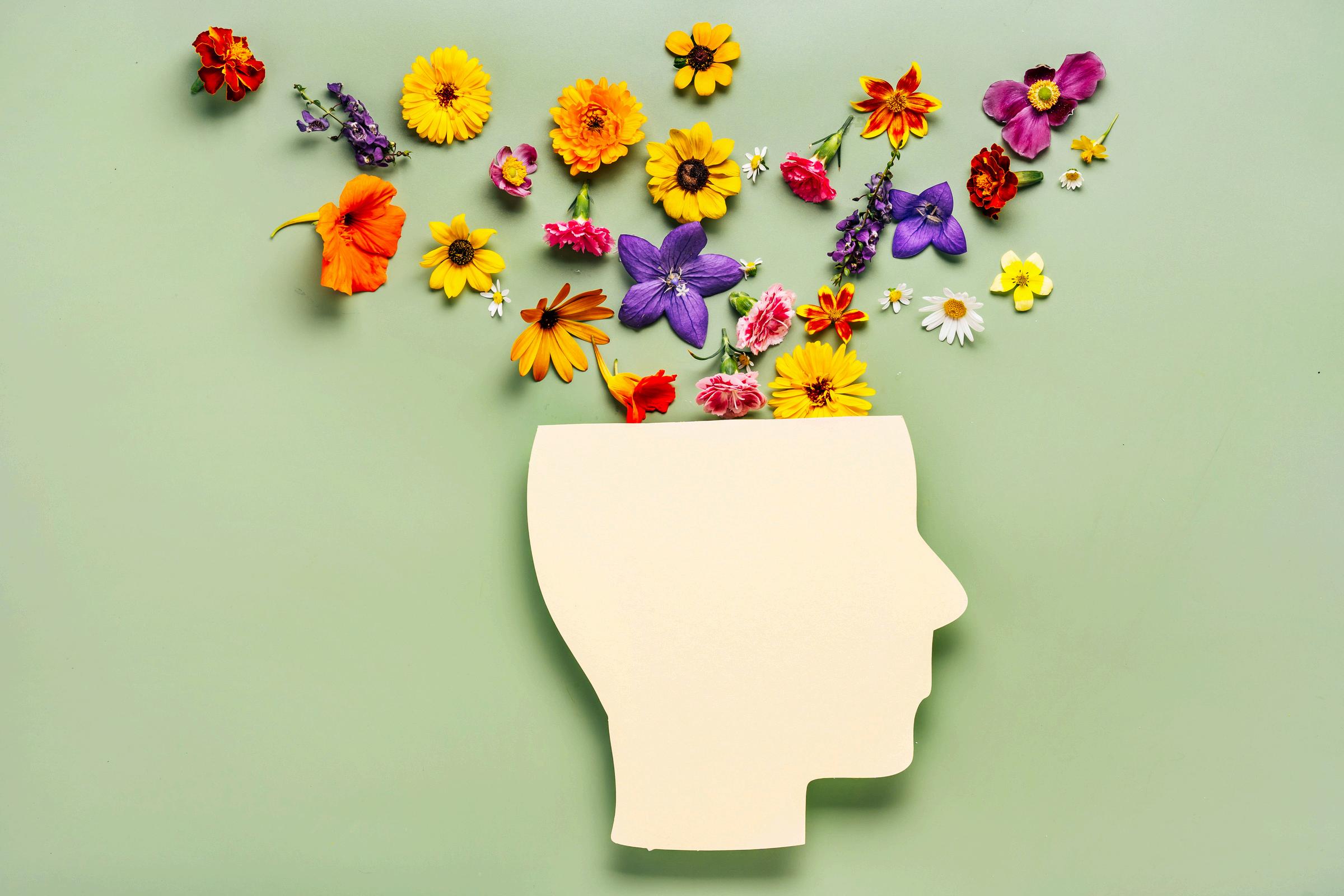
Social media reach across Facebook, Instagram and LinkedIn
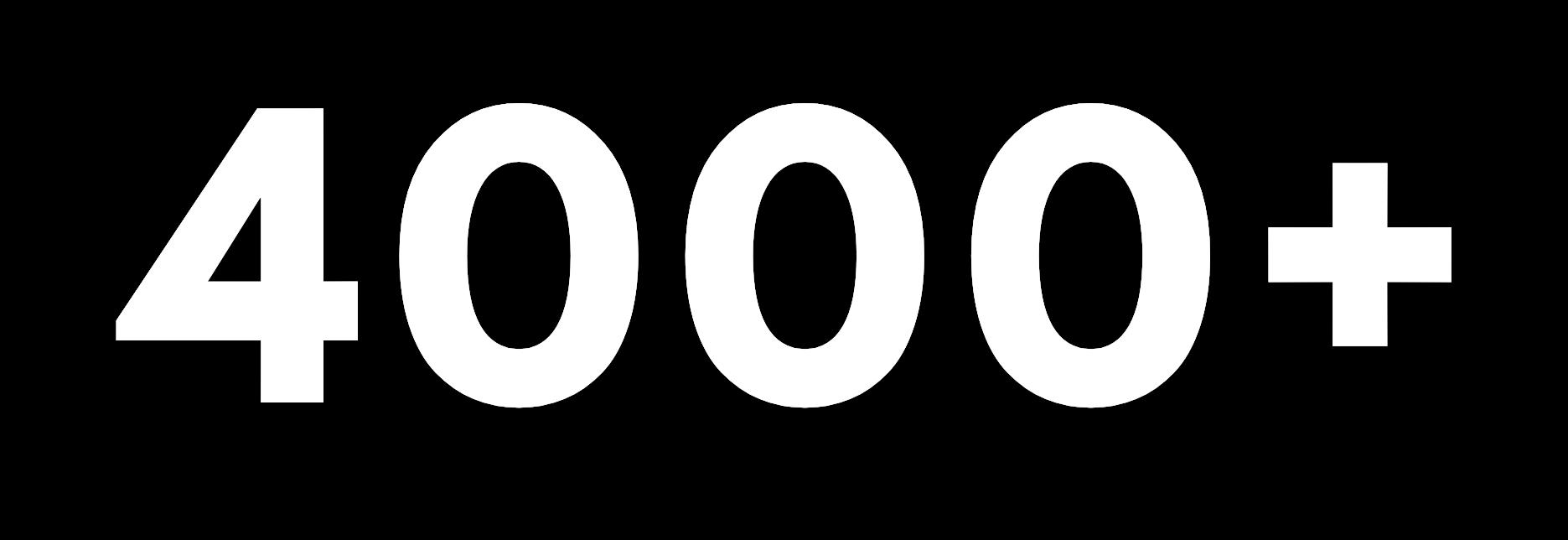
People reached through 17 awareness campaigns from SAFMH's youth forum members

Newsletter subscribers to 23
EMpowered Mind Newsletter Editions
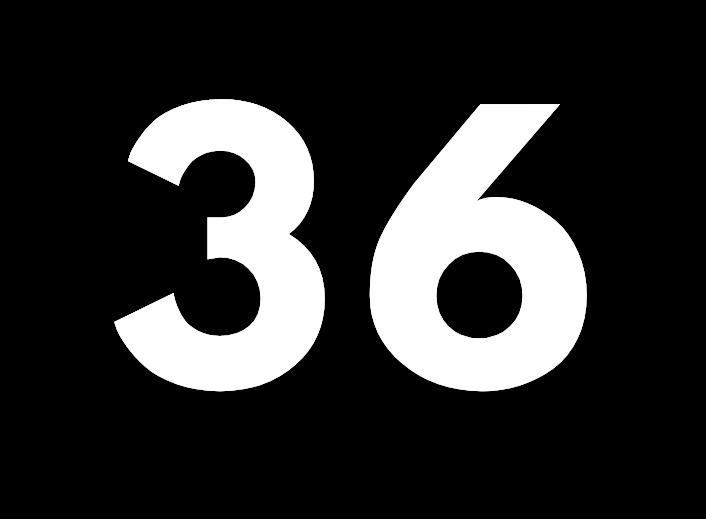
Organisational awareness presentations
National campaigns run
Appearances in the media
The SAFMH helpdesk is a national support and information resource that addresses mental health-related enquiries from across South Africa. In partnership with the National Department of Health, the helpdesk helps bridge gaps in public awareness by offering up-to-date information, guidance, referrals, and support to individuals navigating mental health challenges.
Enquiries come from individuals, families, educators, employers, and health professionals, and may include support with accessing residential facilities, counselling services, legal referrals, or hospital admissions. To ensure effective record-keeping and accurate reporting, the helpdesk maintains a secure, confidential database. Quarterly analyses of this data helps SAFMH track enquiry trends and identify emerging issues.
People can contact the helpdesk for high-quality support from Monday to Thursday from 07:30-16:00 and Friday from 07:30-13:30. We are accessible via telephone, SMS, social media, our website and WhatsApp.
A concerned individual reached out to SAFMH for support while assisting a young person living with severe and debilitating effects of schizophrenia. Over time, the young person ’ s condition worsened, with frequent episodes of paranoia making daily tasks overwhelming and unmanageable. These episodes left the young person feeling fearful, isolated, and unable to function in their environment. The individual shared that the hospital where the young person was receiving treatment lacked the specialised, long-term care needed for recovery. While the hospital addressed immediate needs, it could not offer the ongoing, holistic support required to help stabilise the young person and regain better mental health. Deeply worried about the young person ’ s future, the individual highlighted the urgent need for a more structured and supportive environment. SAFMH responded by providing information on residential mental health facilities that could offer appropriate, long-term care and support.
Thanks to SAFMH's swift intervention and tireless effort, we were able to find a residential facility that offered the structured, compassionate care
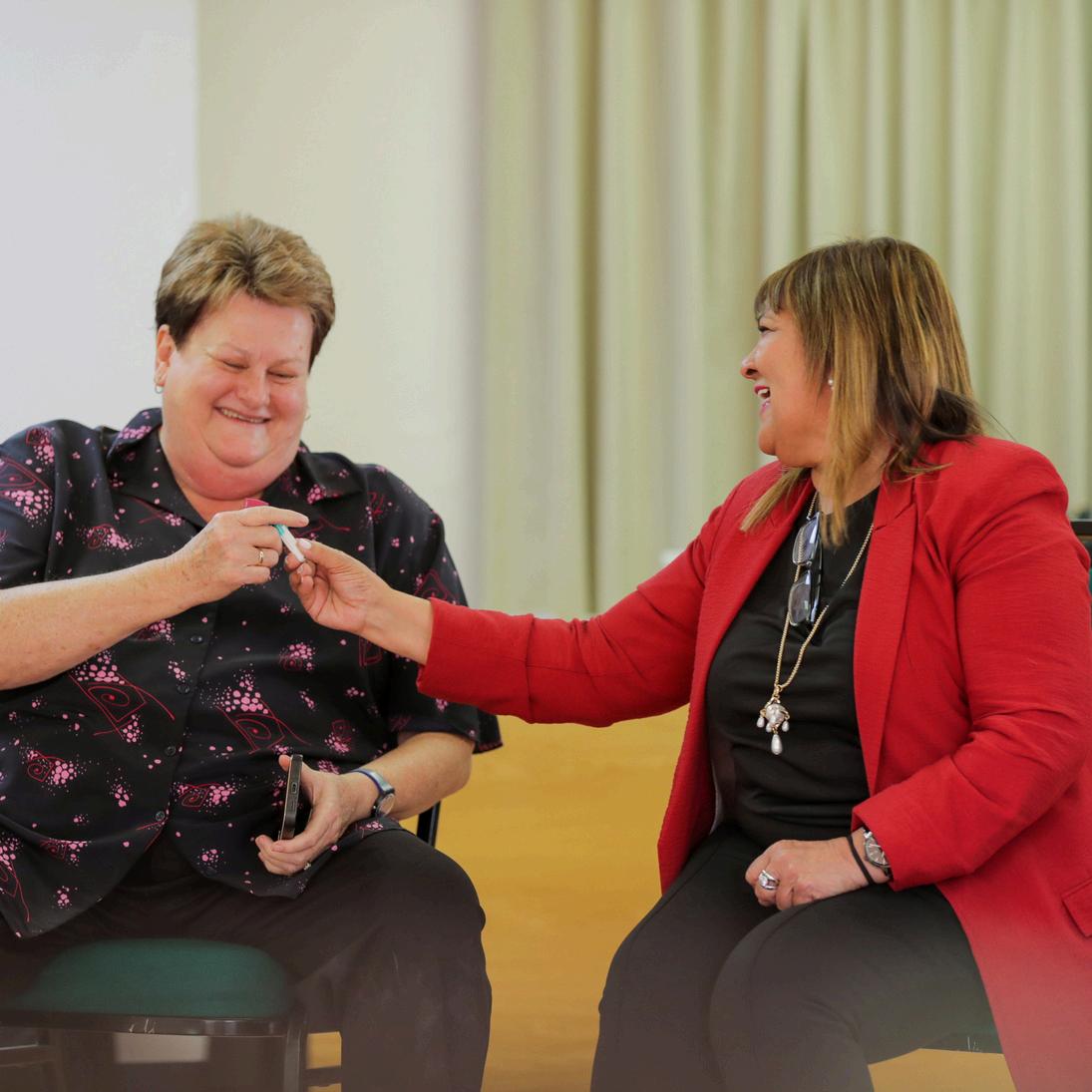


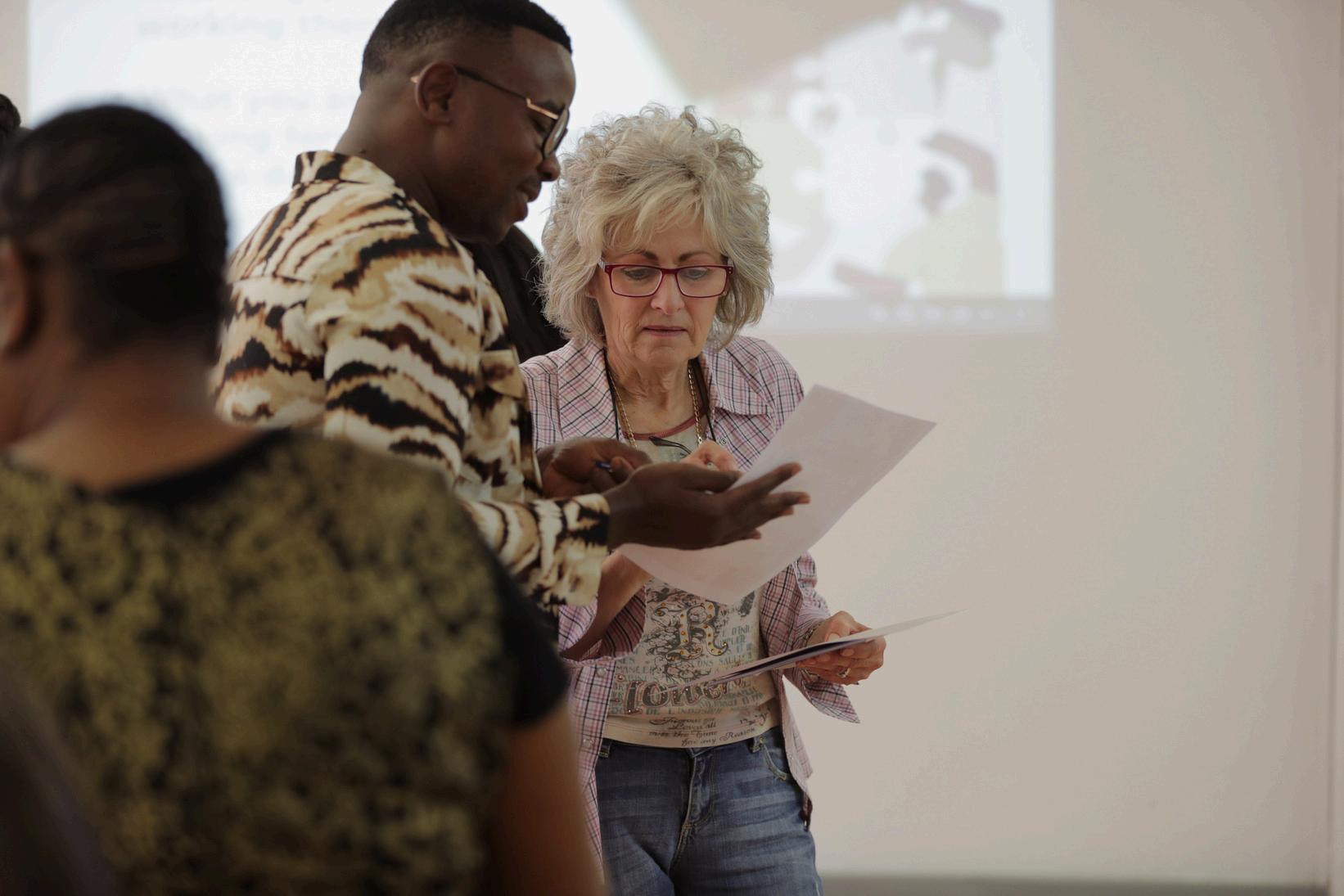
In an effort to reconnect and strengthen the South African mental health movement, SAFMH (supported by Tekano) brought together the Mental Health Society (MHS) directors at our offices in Johannesburg for a three-day workshop in October 2024, focused on recommitting to the work of community-based mental health care in the country. All in all, it felt like we really expanded the imagination about what is possible for mental health services in communities across South Africa.
Day one was all about introductions and reconnections as the directors arrived into the space, some knowing each other for years, and some having never met in person before.
Day two was all about creating space for curiosity and creativity. The MHS directors were purposefully pushed out of their comfort zones but everyone found the day to be fulfilling and fun.
We dove right into unpacking important policies for the sector. Some directors share their expertise on financial sustainability, which everyone found helpful and motivating.
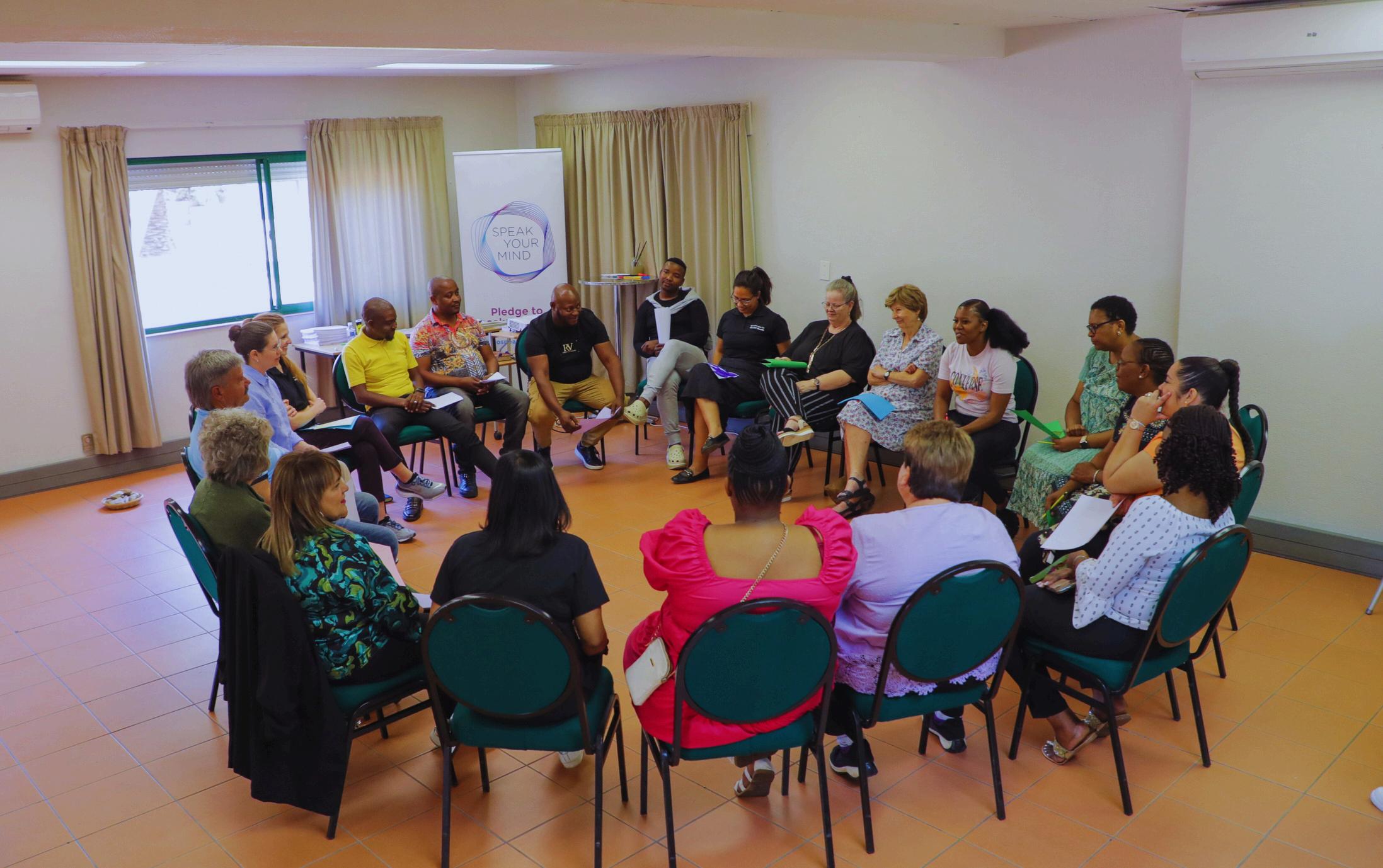
Sharingexperiencesandinsights
attheOctober2024in-person
Directors’Meeting.
ects, collates and om its 17 Mental m the responses we verview of their -based mental on across South rends and e mental health on guides SAFMH's ollaborations with ision-makers, t.
e contribution made by alth Societies, who work l health care users and munities they serve. We their hard work and the benefit from their
Cape Mental Health
renovated Garden Cottage, a group home for women with intellectual disabilities, improving their living environment and quality of life.
Limpopo Mental Health provided staff and management training on leadership, governance, risk management, and strategic planning.
Northern Cape Mental Health built a kitchen serving 800 meals daily and a dining hall for 350 people Mpumalanga Mental Health improved working conditions as a result of the provision of sufficient working tools.
Indlela Mental Health
shared violent crime in the community hindered service delivery.
Northern Free State
Mental Health said subsidy cuts for 2023/2024 had a significant impact on the organisation’s service delivery.
Pietermaritzburg Mental Health shared about funding challengesservice costs rise annually, while state subsidies remain largely unchanged.
Southern Free State
Mental Health shared poor stakeholder support and limited medication at clinics and hospitals, leading to clients defaulting on treatment.
Cape Mental Health
Formed an internal task team to support YouthMatters programme sustainability, while expanding to three new high schools.
Zululand Mental Health participated in community forums aimed at improving the lives of vulnerable groups and people with disabilities.
North Gauteng Mental
Health bought a mobile office for social workers at Soshanguve Block, helping them to provide better services to the community.
REHAB initiated and strengthened relationships with three tertiary institution disability units.
Cross-cuttingprioritiesformanyMentalHealth Societieswerepersistentfinancialchallenges, includingreducedorlatesubsidypaymentsfrom governmentdepartments,issuespertainingtostaff andserviceusersafetyduetocrime,theneedfor betterstaffretention,increasedpartnershipworking toimprovecommunity-levelreferralpathways,and capacitybuildingofstaff.
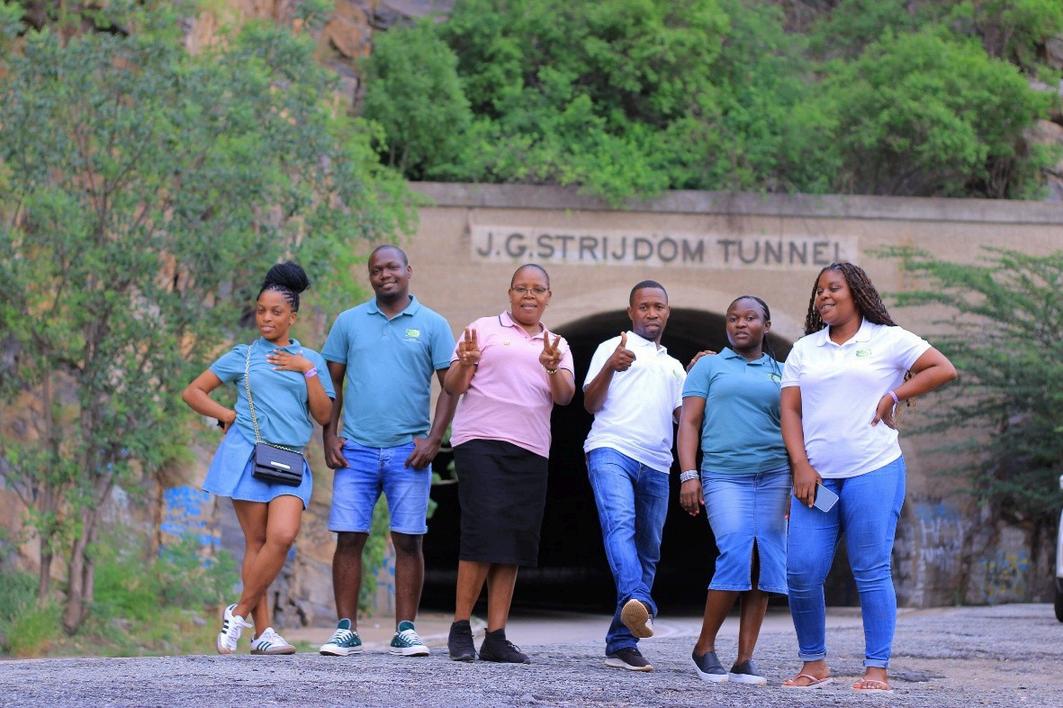
Prioritisingteambuildingandstaff capacitationwasakeyfocusfor manyMentalHealthSocieties.
As always, SAFMH is energised for the year ahead—ready to tackle challenges, embrace new opportunities, and continue keeping mental health firmly in the spotlight.
As the dust has settled after COVID-19, mental health has sustained the momentum it gained during the pandemic. National and international focus on mental health continues to grow, giving SAFMH the opportunity to further support and shape important conversations and initiatives. However, we have yet to see high-level dialogues, policies, and strategies translate into meaningful, tangible outcomes for community-based mental health organisations and the people they serve in South Africa.
COMMITMENT FOR THE YEAR AHEAD. WE WILL:
Continue to monitor the implementation of the Mental Health Policy Framework and Strategic Action Plan 2023-2030, while supporting the growth of our Youth Forum.
Advocate for the inclusion of mental health at all levels.
Provide inputs into reports, publications, policies, and legislation.
Continue building meaningful partnerships and networks.
Research and consolidate mental health literature.
Continue to make our mental health helpdesk available to all who seek assistance.
Continue our awareness and public education work through online and broadcast media, our annual awareness campaigns, commemorating important calendar days, and running awareness sessions within organisations.
Continue publishing mental health content through infographics, blogs, and articles, while publishing life stories of persons with lived experience and our fortnightly newsletters.
SAFMH is committed to ethical conduct, transparency and adherence to the relevant regulations and policies applicable to NPOs.
Our governance structure is empowered to ensure accountability and sustainable value creation, using the various tools listed below:
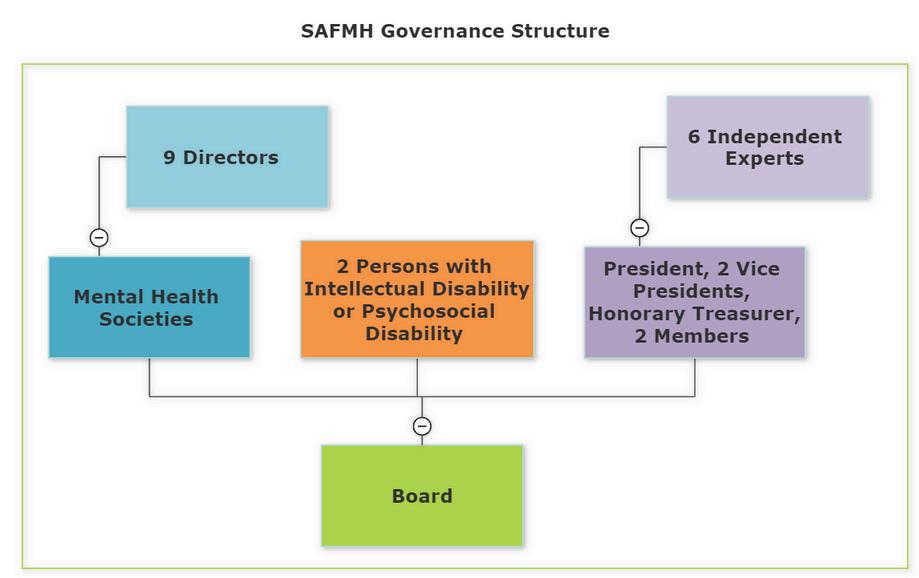
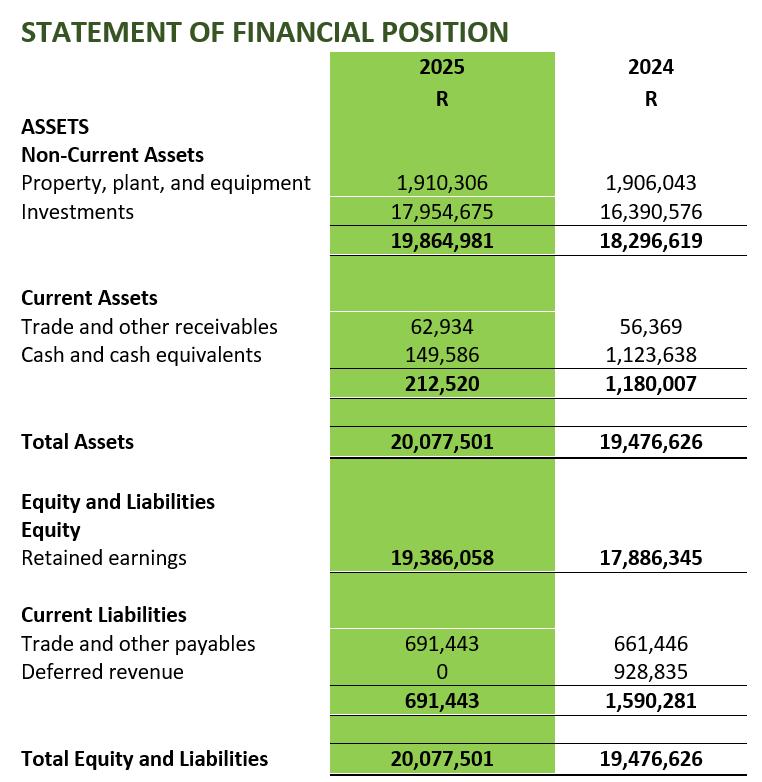
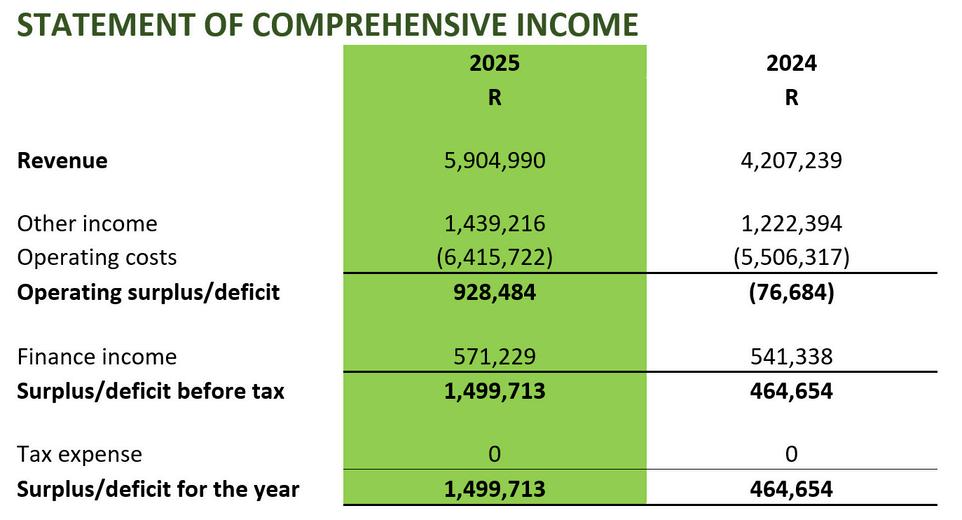
Tom Davies, SAFMH's treasurer: “The finance department deserve five stars each. The budgets were adhered to with no over-runs. Astute marketing and project management resulted in revenue exceeding budget.”
Note: Any potential or existing funders are most welcome to request a full set of our audited financials.
The donations we receive at SAFMH are the lifeblood of our work. With the support from our donors, we are empowered to make lasting and profound changes, turning challenges into opportunities.
AyoungresidentfromCressetHouse duringthescrapbookingsessionaspart ofthe2025IDAMcampaign.


